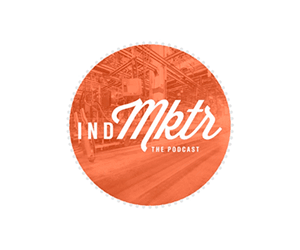One of the questions industrial marketers often have to grapple with is: How is industrial marketing different from consumer marketing? Does it really make that much of a difference?
The answer is “Yes.” The differences between industrial marketing and consumer marketing are subtle but significant. Consumer marketing focuses on individuals using demographic research and other predictive data to craft campaigns. Of course, in industrial marketing, it is still important to know your audience and carefully craft your message but underestimating or not understanding what’s unique about industrial marketing can result in less effective campaigns and less efficient financial investments.
How can you be sure that your approach to marketing is covering all the industrial bases? Here are five fundamental differences between industrial marketing and consumer marketing that you should attend to as you craft your strategy and plan.
1. Long-term vs. Short-term Emphasis
Consumer marketing targets customers who may or may not be long-term users of a product. For example, if a restaurant is offering a limited-time menu item, they can market to someone who may only go to their restaurant for that item. The customer could hear a radio ad, make the choice to try the new food item, and the marketing is judged a success.
Industrial marketing is different. Instead of advertising to individuals who are able to make quick decisions that result in quick successes, industrial marketing is geared toward developing and nurturing long-term, strategic relationships with both individuals and companies.
This is because a distinguishing feature of institutional buying is that buyers use suppliers’ products and services to make their own products and services. This interdependence means that these relationships are incredibly nuanced, requiring coordination across companies (e.g., between seller and buyer, between operational functions, and between engineering teams).
For this reason, it’s important that you get your company — especially employees — to project and support a unified message about your organization. When this is done well, not only does your bottom line expand, but your overall brand recognition grows as well.
2. More Than Just the Message
The second way that industrial marketing and consumer marketing differ relates to how the market responds to change.
If market needs shift in the industrial sector, simply changing the marketing message is not enough. Usually, there are underlying operational changes that can have a significant impact on marketing.
For example, if a company recognizes that it needs to be a more lean facility and undergoes a fundamental operational overhaul, it is going to want to communicate the value of those process-oriented changes to its customers.
An industrial marketer needs to be able to market not only the products that are available to a customer, but the competencies and processes their company uses to deliver value to their customers.
3. It’s a Process, Not a Journey
Continuing the restaurant example above, industrial marketing is not as simple as getting an individual to buy a new burger by intervening appropriately during a customer journey. The industrial buying process is much more complex — and inevitably involves multiple stakeholders, each with their own journeys.
This highly nuanced process needs to be analyzed and understood by industrial marketers in order to develop and execute successful industrial marketing campaigns.
Some questions that may arise along the way include:
- Is your product one that your company will need to install for your customer? In that case, the installation service you provide may be as important as the product when developing a marketing message for customers.
- Will there be service calls to help maintain the product and increase efficiency? An industrial marketer knows that identifying and sharing these benefits are key to developing a comprehensive message.
- Can you customize your product to meet specific needs? Often, a value-added engineering capability can make all the difference.
These types of questions are not secondary for industrial buyers or industrial marketers. They are central to the industrial buying process and have the potential to make or break it.
4. Different Stakeholders Speak Different Languages
An industrial marketer must be fluent in various stakeholder “languages,” depending on who they are communicating with.
For example, in one situation a product’s marketing could be tailored to speak to an engineer who is just beginning the design phase for a new product. His concerns may be focused on the longevity of a supplier’s component, its mechanical specifications, and the speed with which it can be acquired.
On the other hand, an industrial marketer must also take into consideration the concerns of the procurement department at some point in their marketing communications. Procurement will likely focus more on the initial cost of the product, general brand reputation, and potential cost savings down the line.
Part of a successful, comprehensive, industrial marketing campaign is understanding and communicating to all those who are part of the decision-making process, and doing so using languages (e.g., technical, financial) that speak to their unique desired outcomes.
Managing this process requires a more intricate understanding of the dialogue that happens between decision makers than in traditional consumer marketing, where there typically is no decision-making committee and messaging can be based around an individual’s demographic criteria.
5. So Many Paths to Market
For the industrial marketer, the path to market is oftentimes winding. Industrial buyers can come into contact with a company and its products via direct marketing, distributors, independent reps, and resellers, among others — and often do so during the course of their customer journey. All of these channels have the potential to project different messages and compete with one another for a customer’s attention. In which case, coordinating the messaging deployed by these diverse channels is a must.
Thinking of a distributor, for example, the marketing message and materials they use would need to be tailored so they could act as an ambassador for your brand and products. Likewise, resellers may require unique incentive programs and more in-depth training materials to fulfill their part of your agreement.
An industrial marketing team has to understand these different pathways in order to meet the challenge of aligning all channels with one another to maximize success.
Learning More about How Industrial Marketing and Consumer Marketing Differ
Understanding the different nuances of industrial marketing can make a huge difference when developing and launching a successful campaign. Mastering these peculiarities will lead to growth in all aspects of business. And working with a company that knows how to get these pieces right will save you time and money.
Want to know more? Reach out to Industrial Strength Marketing or contact me on LinkedIn.




